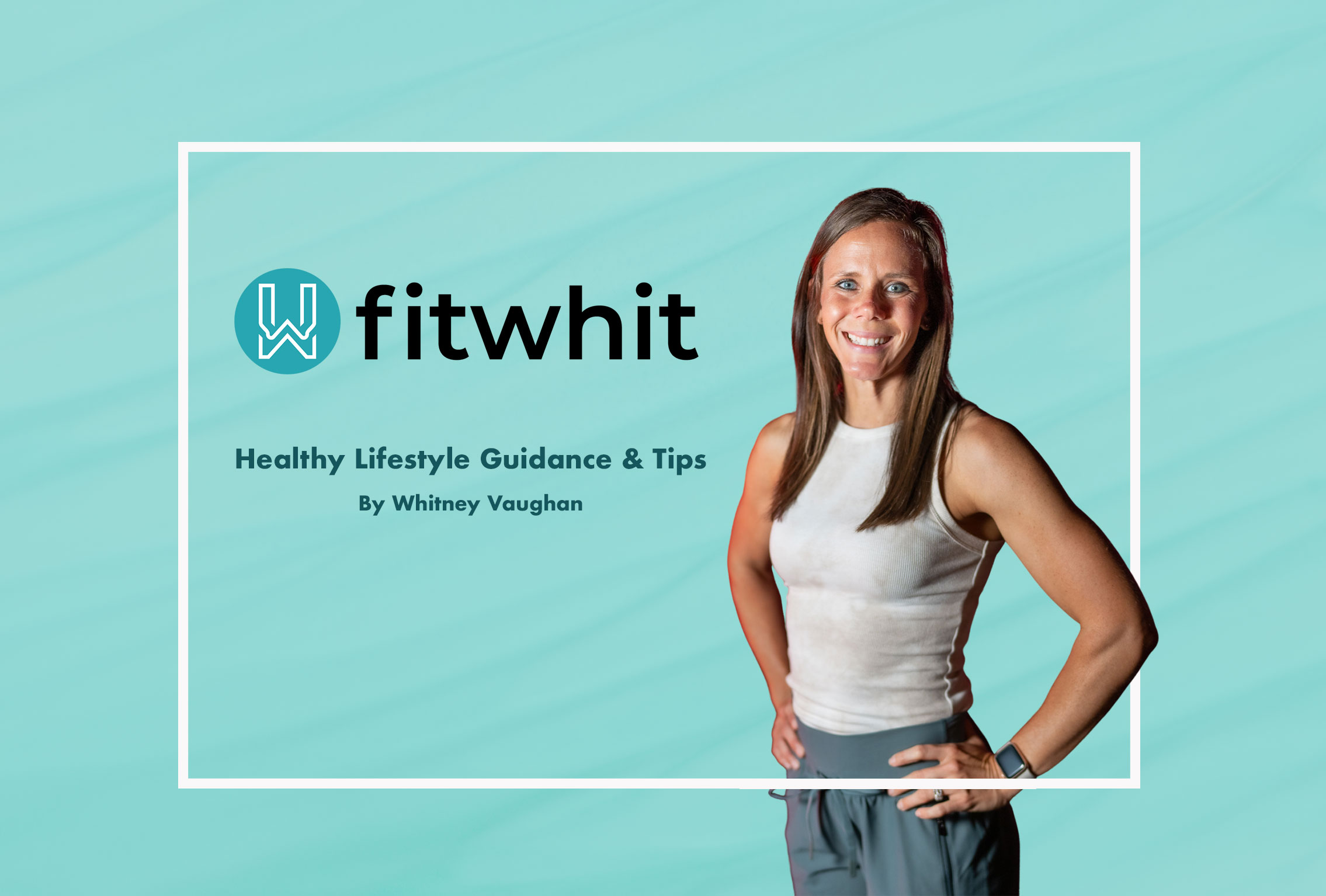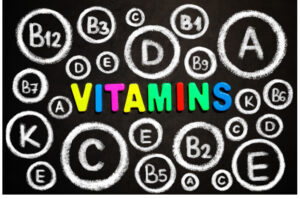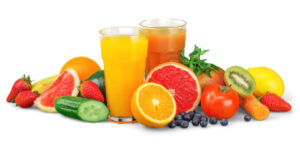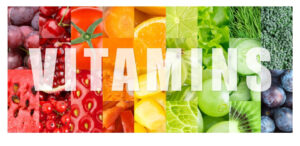Vitamins Found in Foods by Whitney Vaughan

[adning id=”33097″]
Vitamins Found in Foods
You may already know, but I’m here to remind you that all B vitamins convert food into energy. All of these vitamins can be found in a whole, unprocessed foods diet. However, you may not be getting the recommended daily “dose” therefore a supplement may be something to chat with your doctor about and consider.

Vitamin B1 (Thiamine)
This vitamin is important for energy regeneration and energy metabolism. Thiamine is a vitamin found in meats, legumes, and nuts. It can also be found in grains however the processing that most grains go through tends to remove this vitamin. The Food and Nutrition Board (FNB) has given the recommended amount for men and women 19+ years old: 1.2mg/day for men and 1.1mg/day for women. Here are a few foods you can include in your diet to help you get the B1 vitamin: 1/2c of cooked brown rice includes 0.1mg, 3oz of bone-in pork chop includes 0.4mg, and 1c 2% milk included 0.1mg. There are some foods that cause thiaminasis. These are enzymes that destroy thiamine. Foods such as tea, coffee, raw fish, shellfish and alcohol can be diminishing the thiamine you’re getting from your diet.
Vitamin B2 (Riboflavin)
B2 is important for energy production. Riboflavin can be found in meats, dairy (such as milk), eggs, and green vegetables. It is also found in fortified grains. The FNB recommends that men ages 19-50 get 1.3mg/day and women ages 19-50 get 1.1mg/day. A few foods that include B2 are: 1 large whole egg includes 0.2mg, 1c raw spinach includes 0.1mg and 1c 2% milk includes 0.5mg.
[adning id=”33207″]
Vitamin B3 (Niacin)
Niacin takes the energy from protein, fat, and carbs and transfers it to the body’s currency. It’s the “transportation” you might say. B3 is found in meats, nuts and seeds, legumes and bananas. The recommended amounts of B3 for both men and women 19+ years of age is 16mg for men and 14mg for women. Some foods that contain the B3 vitamin are: 3oz of grilled chicken includes 10.3mg, 1 medium banana includes 0.8mg, 1oz of dry roasted peanuts includes 4.2mg, and 3oz of roasted turkey breast includes 10mg. Tryptophan is a major food source of niacin and can be found in turkey. Tryptophan promotes better sleep, relief from anxiety and depression & provides a better overall sense of well-being. If you’re not getting enough B3 vitamin then you may experience headaches, fatigue & possibly memory loss.
Vitamin B6
B6 is the most versatile of the B vitamins which means it plays many different roles within the body. B6 is found in foods such as meats, starchy vegetables (like potatoes) and non-citrus fruits. The FBN recommends that men and women ages 14-50 both get 1.3mg/day. A few foods that supply B6 are: 1c chickpeas includes 1.1mg, 3oz of chicken breast includes 0.5mg, 1c potatoes includes 0.4mg, 1c of marinara sauce includes 0.4mg, and 1c of watermelon includes only 0.1mg. If you’re experiencing lower immunity or even noticing a cognitive decline then you may not be getting enough vitamin B6.

Vitamin B9 (Folate)
Folate helps with amino-acid metabolism which means it helps your body convert amino-acids from protein into energy. Folate can be found in foods such as green-leafy vegetables, peanuts, sunflower seeds, fruits, whole grains, eggs, and seafood. The FNB recommends that both men and women ages 19 and older receive 400mcg (micrograms) per day. A few foods that will help you get folate are: 4 spears of asparagus includes 89mcg, 1c raw spinach includes 58mcg, 3/4c of orange juice includes 35mcg, 1oz dry roasted peanuts includes 27mcg, and 1 medium banana includes 24mcg. If you’re not getting enough B9 in your diet, then you may experience fatigue, irritability, headaches and trouble concentrating.
Vitamin B12
B12 is important for red blood cell formation and a healthy nervous system. You can find this vitamin in foods such meats, fish & shellfish, eggs and dairy. Fortified grains will also have B12. The FNB recommends that both men and women ages 14 and older get 2.4mcg a day. Some foods that contain B12 are: 3oz Atlantic salmon includes 2.6mcg, 1c 2% milk includes 1.3mcg, 1 whole, large egg includes 0.5mcg. Bananas include 0mcg of vitamin B12. Fatigue and weakness, memory loss and confusion are a few side effects from B12 deficiency.
Vitamin D
Who loves the sunshine? This is the best and most effective way to get the Vitamin D your body needs. Very few foods provide vitamin D, so exposure to the sun or taking a Vitamin D supplement will help promote calcium absorption in your small intestine, aid in anti-inflammatory, and help with bone mineralization and growth. The few foods that provide Vitamin D are: fatty fish, cheese, egg yolk and fortified milk. It’s recommended that you get 5-30 minutes of direct sunlight each day. If you decide to take a supplement, you’ll want to get 600IU for men and women 19-69 and 700IU for anyone over the age of 70. You may consider also taking a vitamin D supplement in conjunction with vitamin K for better absorption. Be aware that there is a such thing as too much vitamin D which can cause toxins in the digestive tract due to excess absorption.

Vitamin C
Vitamin C positively affects neurotransmitters and synthesis of collagen along with reducing and controlling infections, healing wounds, and it’s a powerful antioxidant. Citrus fruits along with tomatoes and potatoes include vitamin C. The FNB recommends that those 19 years and older receive 90mg per day for men and 75mg per day for women. You can find vitamin C in the following foods: 1/2c of raw sweet pepper includes 95mg, 3/4c of orange juice includes 93mg, 1 medium orange includes 70mg, and 1/2c raw broccoli includes 39mg. If you’re experiencing fatigue or an iron-deficiency then you may need to include more vitamin C in your diet.
Magnesium
This is a mineral that is naturally occurring in our bodies and assists in over 300 enzymatic reactions. Magnesium helps aid in muscle and nerve function and also regulates blood-sugar and blood-pressure. Foods such as nuts and seeds, legumes, leafy-green vegetables, whole grains, meats and fruits all have magnesium present in them. It’s recommended that anyone 19 years or older should receive 400-420mg per day for men and 350-360mg per day for women. The following foods contain magnesium: 1oz of chia seed includes 111mg, 1oz of almonds includes 80mg, 1/2c of black beans includes 60mg, and 1/2c of shelled, cooked edamame includes 50mg. If you’re not getting enough magnesium in your diet you may experience fatigue and weakness, muscle cramps, or nausea.
If you find yourself checking the nutritional facts and ingredients for the vitamins and minerals found in the foods you buy at the store, remember that “refined” food have had most of the nutrients (including vitamins and/or minerals) stripped from them. “Enriched” means that some vitamins and/or minerals have been put back into the foods, but they are not naturally occurring. You’ll want to get whole grain foods for best nutrition. Most fortified grains contain the vitamins mentioned in this article, but any time you can get vitamins from whole foods, your body will thank you.
You may agree that the average person isn’t getting all the vitamins they need in their diet alone each day. Take the time to think about and be mindful of how you’re feeling throughout the day. Could it be your diet? Should you consider having a conversation with your physician about supplements to get the most out of each day?
[adning id=”33207″]













